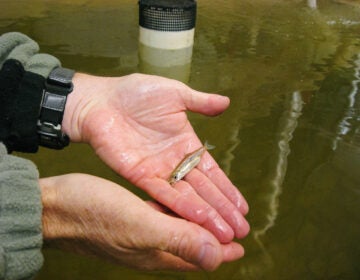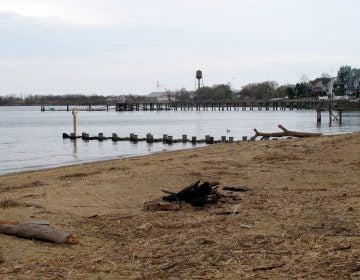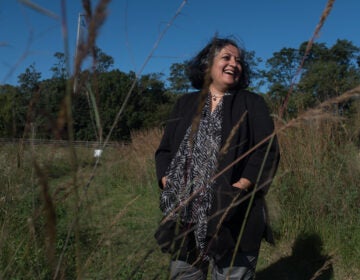DEP plans new effort to regulate off-road vehicles in Pinelands
The new commissioner hopes public hearings will resolve a rancorous debate. He promises new regulations and permits, and tougher penalties.

This Jan. 6, 2014 photo shows a section of the Pinelands region in Lakehurst N.J. (AP Photo/Wayne Parry)
This story originally appeared on NJ Spotlight.
___
The Department of Environmental Protection plans to hold public hearings to try to settle a long-running confrontation over the illegal use of off-road vehicles on state property in the Pinelands, the DEP’s new Commissioner, Shawn LaTourette, said.
LaTourette hopes the hearings will find a way of balancing the interests of drivers of pickup trucks and all-terrain vehicles with those of hikers, birders or anglers.
The hearings represent the latest attempt to resolve a rancorous public debate over the recreational use of the Pinelands, in which conservationists accuse off-roaders of a lawless disregard for the environment, while the drivers resist official attempts to restrict where they can roam in the vast forests of South Jersey.

Some areas such as Colliers Mills Wildlife Management Area in Jackson Township and Greenwood Forest Wildlife Management Area, both in Ocean County, are badly eroded by over-use of motorized vehicles. But Jemima Mount, formerly a heavily used off-road vehicle playground in Wharton State Forest, is recovering after barriers were built by the off-roading community to keep vehicles out.
In an interview Tuesday with NJ Spotlight News in the 122,000-acre Wharton tract — a magnet for off-road vehicles — LaTourette said the drivers are entitled to use the Pinelands as long as they do so legally and without damaging sensitive natural sites, as some have.
New map to show where vehicles can — and can’t — go
But he said DEP will be proposing a new map showing where vehicles can and cannot legally drive; introducing tougher penalties for those who ignore restrictions, especially in sensitive natural areas; launching a permitting system for off-road drivers, and formalizing those practices with new regulations. The DEP will provide a “framework” as a starting point for the public discussions, LaTourette said.
Still, the specifics of the map would be subject to the public hearings when the parties will hopefully reach consensus, LaTourette said.
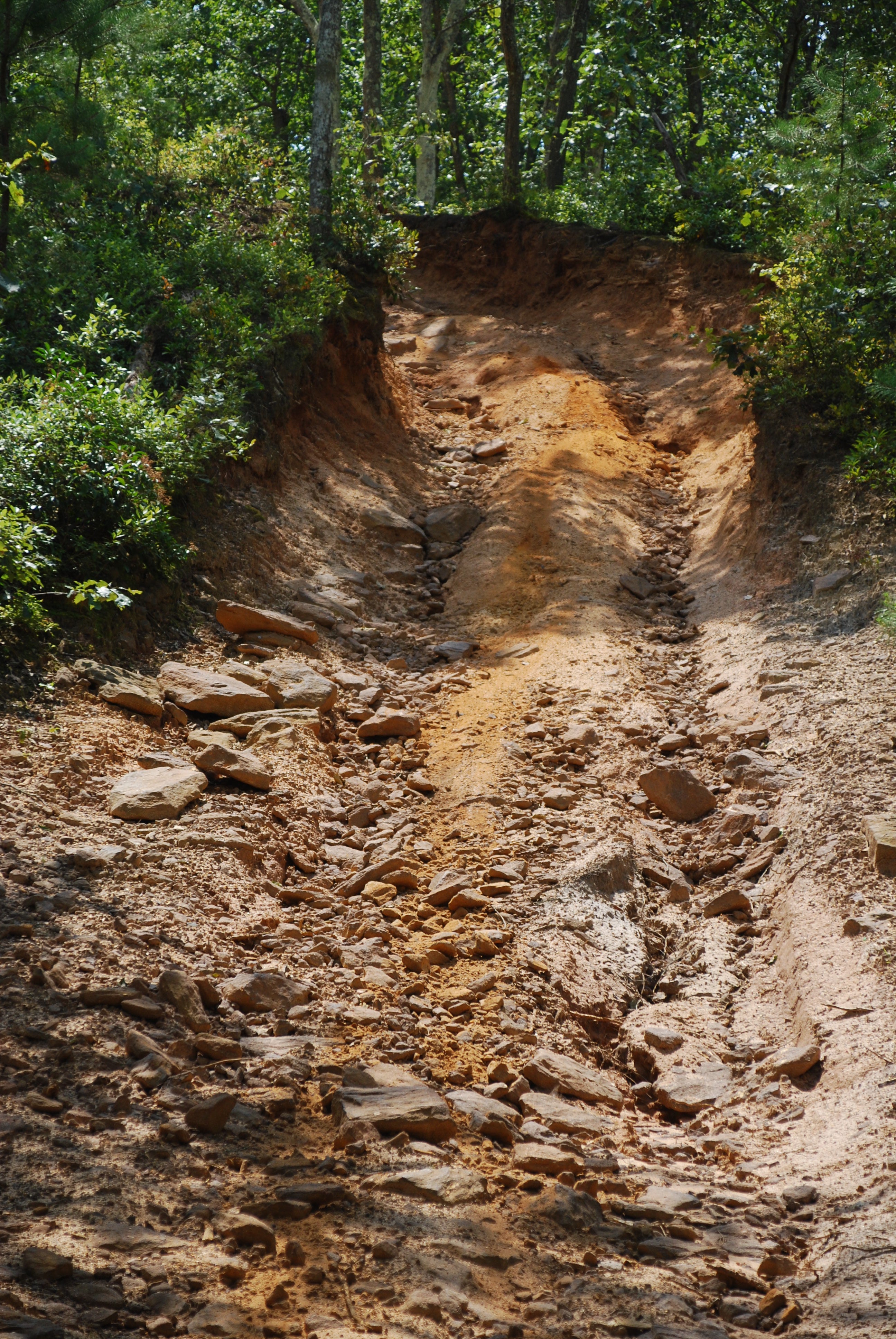
“We need to have deep public engagement around what all believe are the appropriate places to provide ORV access and the places that are not,” he said. “We need to build a bigger tent. We need to go through that public process, the end result of which should be a map of accessible areas and non-accessible areas.”
Many drivers of off-road vehicles are just as dedicated to preserving nature as are conservationists, LaTourette said.
“They may enjoy it in a different way to the birder or the hiker, but it doesn’t make their need or their desire to enjoy public lands that also belong to them somehow less important than the desire to enjoy public lands that also belong to the hiker and the birder,” he said.
Hearings during the summer
The hearings, which will likely be both online and in-person, will be formally announced in the coming weeks, and will begin during the summer, LaTourette said.
The public process represents a new effort to resolve a standoff over the recreational use of the Pinelands. In 2015, the DEP published and then quickly withdrew a “Motorized Access Plan” that would have cut the number of trails that could legally be used by off-road vehicles in Wharton State Forest. Conservationists have long accused the DEP of dropping the plan in response to protests from the off-road lobby, but LaTourette said Tuesday that the “MAP” was scrapped because “we did not do enough to engage everyone.”
Asked whether he agreed with some conservationists who say that these motorized vehicles have turned the Pinelands into the “wild west” of New Jersey, LaTourette said that description was “an unfair characterization that lacks nuance.”
In light of long-simmering tensions between the two sides, LaTourette said he’s under “no delusions” that everybody will get on the same page, but hopes that some consensus can be reached. He predicted that the public-hearing process will last at least a year, but said discussions are already taking place with stakeholders, and that state park police have already stepped up enforcement of existing rules.
“I don’t want to give the impression that nothing is happening until this new way forward is complete,” he said.
Some sites have been ‘eviscerated’
The new commissioner acknowledged that some sites have been “eviscerated” by off-road vehicles, some of which engage in so-called mudding that results in deep ruts being gouged by spinning tires in ponds or wetlands.
Amanda Smith, the chief of park police, said her officers have been handing out more tickets for driving in off-limits areas over the last year and said they have been trying to educate drivers in where they may and may not legally drive their vehicles.
“They want to connect with nature in some way, and we respect that, but everybody has to do it responsibly,” she said.
Ray Bukowski, the DEP’s Assistant Commissioner for Natural and Historic Resources, said other uses of the Pinelands such as hunting and fishing have the potential to damage the environment just as much as off-road driving does. “It’s about a balance of having appropriate access, of having people be able to use these properties while trying to minimize the damage,” he said.
Open Trails NJ, an advocacy group that works to maintain access to the state’s forests for users including off-road drivers, welcomed LaTourette’s promise of an inclusive discussion over how to balance competing interests in the Pinelands.
‘Responsible motorized recreation’
John Druding, the group’s president, said it supports “responsible motorized recreation,” and has provided volunteers to close off overused areas such as Jemima Mount.
“I’m hoping that the state will take advantage of these eager volunteers to help achieve their goals rather than considering any draconian measures which impinge on responsible motorized access,” he said.
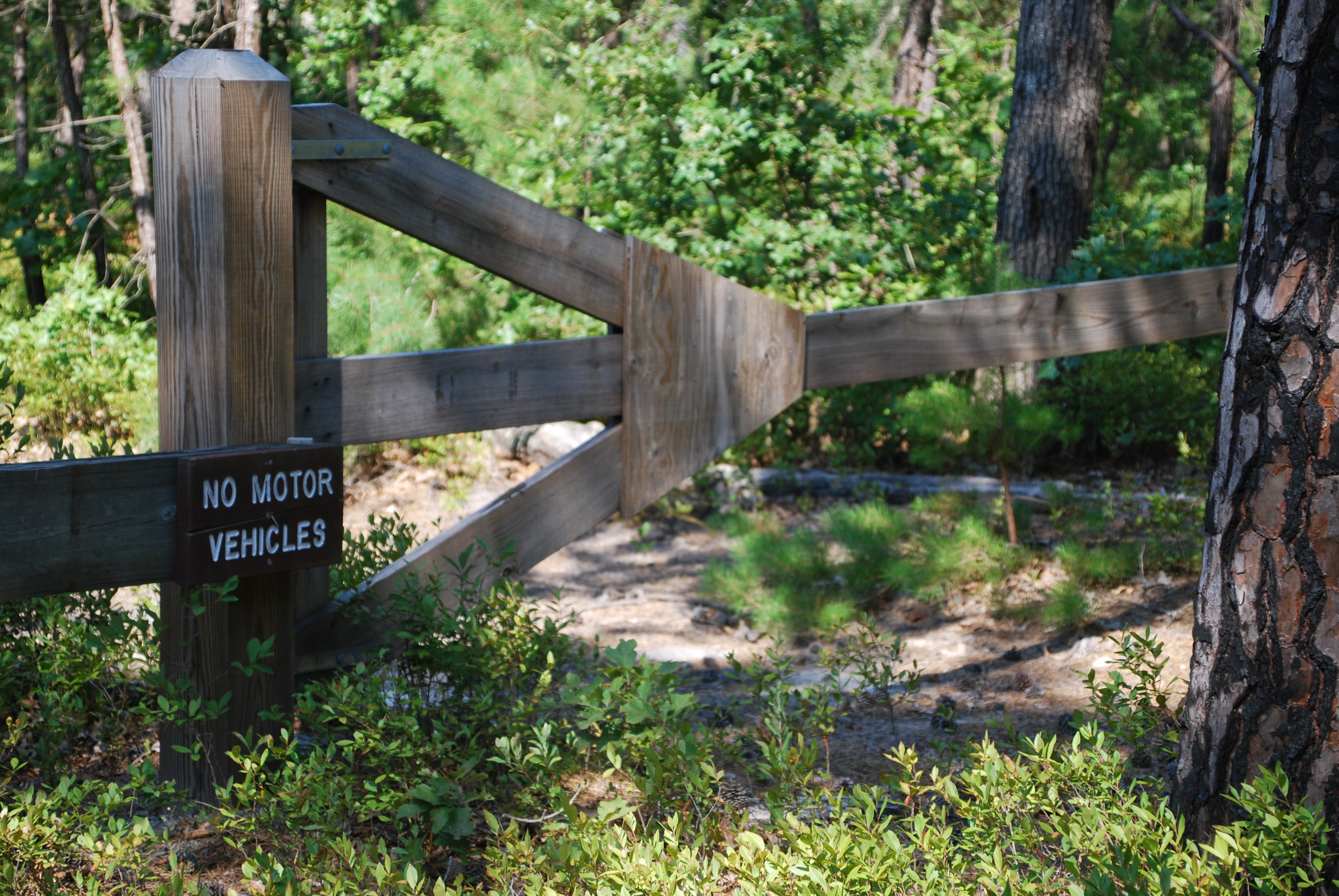
Jason Howell, a public lands advocate at the nonprofit Pinelands Preservation Alliance, and a longtime foe of off-road drivers, said it was hard to tell on the basis of LaTourette’s interview what the DEP’s new policy would be, but he warned that any increase in vehicle use in the Pinelands would also increase the damage to the environment.
“The only appropriate usage of motor vehicles is for sightseeing and access to trailheads and other unique areas alongside designated paved, gravel, and sand roads,” Howell said in a statement.
If the Pinelands National Reserve had not been created by state and federal officials and lawmakers, and supported by the public, the land would by now have been turned into “strip malls, retirement communities and suburban sprawl,” he said.
“The sacrifices made by those who created and maintained the Reserve over the last 40 years were not so that DEP could turn this pristine natural area into a de-facto off-road vehicle park,” he said.
Still, Howell said his group will participate in the public hearings. “We look forward to a process for discussing the DEP plan and look forward to quick action for a permit system that takes into account these concerns,” he said.
WHYY is your source for fact-based, in-depth journalism and information. As a nonprofit organization, we rely on financial support from readers like you. Please give today.


